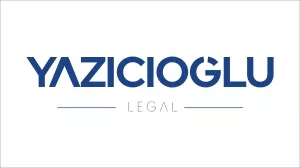The Law Amending the Media Law and Certain Other Laws (the “Amending Law”) was published in the Official Gazette dated 18 October 2022.
Among others, Amending Law introduced significant amendments to the Electronic Communications Law No. 5809 (“Electronic Communications Law”), namely, providing the definitions of “over-the-top service” and “over-the-top service provider” as well as very general obligations of the latter.
1. Definitions
According to the recently introduced provisions, the definitions are as follows:
Over-the-top (“OTT”) Service is defined as an interpersonal electronic communication service which includes audio, written and visual communication and is provided:
- to subscribers and end-users with internet access
- via publicly available software and
- independent from the operators or the internet service provided.
OTT Service Provider is defined as legal or natural person, who provides OTT Services.
2. General obligations
- An OTT Service Provider must carry out its activities via its fully authorized representatives established as a joint stock or a limited liability company in Turkey.
- An OTT Service Provider's activities are subject to the authorization of the Information and Communication Technologies Authority (“ICTA”).
- OTT Service Provider will be regarded “operator” under Electronic Communications Law. In this regard, its rights and obligations under Electronic Communications Law will be determined by ICTA depending on the characteristics of the provision of OTT Service.
3. ICTA's authority and fines
- ICTA is authorized to regulate the provision of OTT Services.
- ICTA is also authorized to take all kinds of measures against
the provision of OTT services without an authorization, or in
breach of the regulations imposed by ICTA. Measures taken by ICTA
may include imposing obligations to OTT Service Providers to ensure
preventing the provision of the OTT Service. In this regard:
- ICTA is entitled to impose administrative fines between TRY 1,000,000 and TRY 30,000,000 for the non-compliance with the obligations under Section 2 above.
- In case of failure to (i) pay the administrative fine imposed
and (ii) fulfill the prescribed obligations within 6 months from
the notification to be made by ICTA, or (iii) obtain authorization
for OTT Service:
- the Internet traffic bandwidth of the OTT Service Provider can be restricted up to 95%;
- in addition, ICTA may also decide to block access to the relevant website or application.
4. Our view
It is fair to say that ICTA's and law makers' long-time wish to regulate OTT Services in Turkey has come into life with these amendments. However, we do not know for sure which obligations will be imposed to OTT Service Providers by ICTA.
For instance, we do not know whether or not operators' certain requirements under Electronic Communications Law such as (i) having a physical office space of 50 m2 area in Turkey, (ii) employing at least 2 university graduates in Turkey, one which will act as a general manager residing in Turkey, (iii) providing technical means for lawful interception and intervention by national institutions authorized by the law, will also be applicable to OTT Service Providers.
Based on the wording of the amendments, we anticipate that the secondary legislation will be published by ICTA to clarify which regulatory requirements that will be applicable to OTT Service Providers.
The content of this article is intended to provide a general guide to the subject matter. Specialist advice should be sought about your specific circumstances.





